
Aviation Laws on right of Airlines to refuse carriage

Learn & Share
www.legalnaija.com
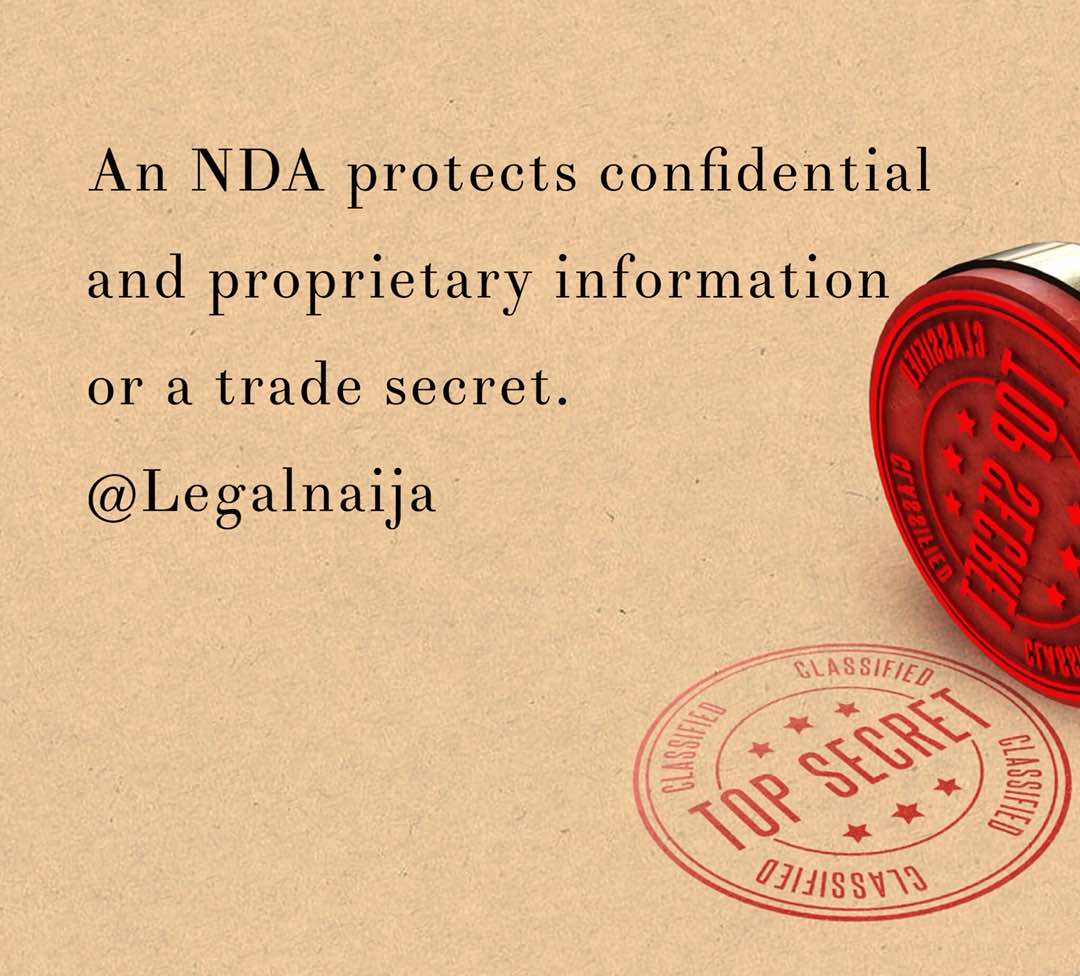
Essence of NDAs

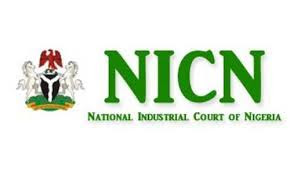
What You Need To Know About Filing A Compliant In The National Industrial Court Of Nigeria

Industrial Court has become the one-stop-shop for many labour disputes,
although established in the year 1976 under Section 19(1) Trade Dispute Decree
No. 7 of 1976, its status has become ever clearer since its further
codification to the Constitution as a superior court of record by virtue of the
provision of section 254A through the third
alteration act 2010 No. 3, an amendment in the Constitution of the Federal
Republic of Nigeria 1999. For many new wigs and old ones alike, commencing an
action in the National Industrial Court is not a herculean task. Flowing from
the laid down procedure contained in the “National Industrial Court of Nigeria
(Civil Procedure) Rules 2017”, fillings at the Industrial Court should be as easy
as eating cake. The following paragraphs will highlight the steps needed.
that there several ways of commencing an action at the Industrial Court; a
quick peek at Order 3 Rule 1 shows
seven ways to commence an action.
include:
Complaint
Originating Summons
Originating Motion
Application for Judicial Review
Notice of Appeal or Petition
Referral from the Minister of Labour and
Productivity
By any other means that may be prescribed by the
Rules, Act or Law enforce in Nigeria
ways of instituting an action in the Industrial Court are tailored to the
nature of the claims and relief sought. Nevertheless, for the purpose of this
article we shall focus on the most common way, Complaint.
2017 clearly highlights that a Complaint is the best form action in
circumstances where the said matter is one in which the court has exclusive
jurisdiction as provided under section 254C par. (a)– (k) And (m) of the
Constitution of the Federal Republic 1999 (as amended) or by any act or law in
force in Nigeria. Where a matter is set
for both interpretation and application a Complaint still remains the best
option. This is a clear distinction from an originating summons that is
adequate for just an interpretation of the relevant statute within the
jurisdiction of the NIC.
form as seen in Form 1 in the civil procedure rules; however, it cannot be
tendered alone, as Order 3 Rule 9
shows further accompanying documents to a Complaint, they include:
Statement of facts establishing the cause of
action
of witnesses to be called
statement on oath of all the witnesses listed to be called by the claimant
List and number of copies of the document and
other exhibits to be tendered at the trial.
is glaring that certain information must be affixed on a complaint form. They
include:
The names, description and addresses of the
parties
A clear and concise statement of the material
fact establishing the cause of action in chronological order on which the
party relies which wherein the statement shall be sufficiently particularized
to enable any opposing party reply.
A clear and concise statement of the legal
issues that arises from the material facts which statement shall be
sufficiently particularized in such a manner so as to enable the opposing party
reply
The relief sought.
that a complaint, in the most mandatory rhetoric, Shall:
be signed by the party to the proceedings or by
such party’s legal practitioner;
express all dates, sums and numbers contained in
the document in figures;
be accompanied by a schedule listing of documents
and the number of document and exhibit that are material and relevant to be
used in the proceedings.
procedures for filing any kind of originating process In any court is its
“Procedural Rules and Enabling Act”. For many who are aggrieved with their
employers or former employers and want to sue, it is extremely important to
consult a lawyer. This is simply because, Law is a Lawyer’s trade. Lawyers are
trained to identify a cause of action and represent their client’s interest. In the case of Bello Raji v. X[1] the court mentioned that “the duties of proctors (lawyers) consist in
acquiring a thorough knowledge of the rules of their profession in applying
themselves to the affairs committed to their charge with such vigilance,
diligence and care as that their client may not be in any way surprised”.

The Increasing Need For Utility Of Class Actions In Seeking Redress For Consumer Rights Violations In Nigeria

have brooded over the idea of penning a piece on ‘Class Actions in Nigeria’ but
always heckled by the choice of title that would captivate my target audience:
consumers (individuals and groups alike) and their lawyers – the main players.
the wave-making judgement of the Lagos High Court in Fijabi Adebo Holdings
Liited & Anor. v Nigerian bottling Company & Anor.Suit No. LD/13/2008
re-invigorated me into rethinking and re-aligning the idea to stimulate the
prevalent mood of Nigerians towards the returns embedded in class actions
especially towards seeking recompense over widespread consumer rights
infringements.
the Fijabi Adebo’s case wasn’t a class action, the eye-popping testimony
of Abiodun Adebo Falana, NAFDAC’s Head of central laboratory at pages 9 and 10
of the judgement further revealed the perennially continuous, conscious and
deliberate assaults on the sensibilities of the Nigerian consumers in the
pretentious form of goods and services which may not pass quality standards tests
and/or end-users’ tolerance elsewhere in the World. Nigeria has over time,
sadly become the dumping-ground of all sorts.
manufacturers’ default have been repeatedly and successfully redressed by class
actions predominantly in United States of America, Canada, Australia and other
parts of Europe where the procedure had gained widespread prominence, utility
and understanding as a veritable tool for consumer rights advocacy, protection
and compensation. Hence, it comes as no surprise, that hundreds of class
actions are filed annually in the U.S. in almost every facet of their goods and
services-delivery.
of class action
class action, simply put, is a suit filed by a party/parties for
himself/themselves and on behalf of other unknown and/or unidentified persons
who are termed “class members” against common Defendant(s) who has/have wronged
the party/parties and members of his/their class.
C. Mulheron in her book “The class action in common law legal systems: a
comparative perspective” (North America, Hart Publishing, 2004) broadly
described a class action as:
class action is a legal procedure which enables the claims (or part of the
claims) of a number of persons against the same defendant to be determines in
one suit. On a class action, on or more persons (the representative plaintiff)
may sue on his or her own behalf and or on behalf of a number of other persons
(the class) who have a claim to a remedy for the same or a similar alleged
wrong to that alleged by the representative plaintiff and who have claims that
share questions of law or fact in common with those of the representative
plaintiff (common issues). Only the representative plaintiff is a party to the
action. The class members are not usually identified as individual parties but
are merely described.
the United States of America is widely touted as the home of class actions,
history has it that the special procedure was actually ‘imported’ into Yankee
from England were it originated in the 12th Century. This seemingly
controversial part of history was written by Raymond B. Marcin, an Emeritus
Profession of Law of the Columbus School of Law in his article “Searching for
the Origin of Class Action” published in 1974 as part of the Catholic
University of America, Washington D.C.’s scholarship repository (23, CATH U.L.
REV. 515 (1974).
the article, Marcin, relayed the amusing facts of the most prominent of the
earliest class actions filed in England – Brown v Vermuden 22 Eng. Rep. 796,
802 (Ch. 1676) where in Debyshire (a county in east midlands of England),
the Vicar of Worselworth (Reverend Carrier who was later replaced by Reverend
Brown) was distraught that mine owners were not paying tithes, he filed an
action against the mine owners and workers claiming entitlement to one-tenth of
the lead-ore output of the mines.
miners named four of their number to defend the suit but when the Vicar
judgement was given in favour of the Vicar, Mr. Vermuden (one of the miners)
intervened after the judgement and argued before the court that he ought not be
bound by the judgement as he was not a party. The Chancellor however held that
all the other mine owners and workers were bound by the outcome of the suit
even though they were not individually named in the suit.
Marcin doesn’t appear standing alone on this tract of history-writing, as his
account on the origin of class actions was corroborated by Professor Stephen
Yeazell (an American Professor of Law Emeritus) in his book published as far
back as 1987 titled “From Medieval Group Litigation to the Modern Class Action”
New Haven: Yale University Press.
large extent, it seems scholars agree to a large extent that class action or
its strong procedural pretences emanated from England but what seems unsettled
is the year, it erupted: while some schools of thought posited 12th century
others chose later centuries.
instance Marcin says the history of class action goes beyond the “pale of
chancery itself to the misty era of the Eyres of thirteenth and fourteenth
century” backing same with the fourteenth century petition of Hilgay v Wasnam
10 SELD. Society 44 (No. 41, Ch. 1399) (1896) and Discart v Otes, 30 SELD.
Society 137 (No. 158, P.C. 1309) (1914).
back home, although, provisions on class actions have existed in the varying
rules of court especially the Lagos High Court Civil Procedure Rules as far
back as 1972 Rules (Order 13 Rule 15) the special procedure has not, to my
mind, been adequately utilized by legal practitioners.
Class actions in Nigeria are few and far between. In fact, the writer is aware
of only one reported Court of Appeal decision on the subject matter in the case
of Gallaher Limited & Anor. v British American Tobacco Co. &
Ors. (2015) 13 NWLR (Pt. 1476) 325 which was filed under the Federal
High Court Civil Procedure Rules 2009 against infringement of patent/trademark.
may safely be said here that the origin of class actions in Nigeria is more traceable
to the existence of procedural rules of court on the subject than to the filing
and/or certification of the suit itself but without prejudice to the ones filed
but not given adequate publicity and/or law reporting.
from the foregoing, if the origin of class action is traceable to law reporting
in Nigeria, then we may say that if recently got its first appellate judicial
upholding on the 19th day of December 2014 when the Ilorin division of the
Court of Appeal in Gallaher’ s case made express pronouncement on class
actions and when a court would made an order of appointment especially under
the Federal High Court Rules.
is however worthy of note that, the Nigerian Institute of Advance Legal Studies
organized a Round Table on Class Action organized in 2013 and published a
Communiqué which (arguably) states that:
first and successful class action suit was instituted in 2001 and concluded in
2010 by Mr. Lucius Nwosu SAN on behalf of Ejama-Ebubu community in Tai Eleme
Local Council of Rivers State of Nigeria which clearly shows that despite its
many advantages, paucity of legal provisions on class action litigation seem to
create a murky environment that somewhat impedes such suits in Nigeria.”
suit alluded to above is Shell Petroleum Dev. Co. Nig. Ltd. v Edamkue &
Ors. (2009) 14 NWLR (Pt. 1160) 1 – the propriety or otherwise of its
allusion as a class action is not the purport of this write up.
procedural point of view, the confusion of representation actions with class
actions seem the stagnating-devil of the latter as both practitioners and
judges often juxtapose the two similar but distinct procedures.
confusion may however be explained away on the reality that there exists no
separate substantive legislation on class actions in Nigerian where provisions
for class actions are only found (side-by-side with representative actions) in
the procedural rules of courts which often tie the procedure to the judicial
discretion unlike in other jurisdictions of the World where justiciable rights
to file class actions are guaranteed by substantive law. For instance, see the
Class Action Fairness Act 2005 of the United States; Federal Court of Australia
Act (Part IVA), Class Proceedings Act of Canada 1992.
actions are similar to representative actions in that, they both have
personally named parties representing groups but that seems the only
string-attached as far as the two procedural rules of court are concerned.
the purpose of clarity and convenience, the dissimilarities of the two
procedures have been outlined in the table below:
Action) Provided under Order 13 Rule 12 of the Lagos High Court Civil Procedure
Rules 2009
action) Provided under Order 13 Rule 13 of the Lagos High Court Civil Procedure
Rules 2009
Action)May be brought on any cause of action with few exceptions.
action) Restricted to interpretation of written instruments, statutes,
administration of estate, property subject to trust, customary, family or
communal property
action) Does not require leave of court
action)Requires appointment by Judge
action) Notice of representation is not required
action) Notice of appointment is required
action) Interested persons are identifiable and ascertainable
action) Class members may not be identifiable and ascertainable
are appointed or authorized by members
action( Representatives are appointed by Court
action) Outsiders can not opt-in
members can opt-in and opt-out
are answerable to their members.
takes an active role in the event of compromise/settlement
representative actions, Members must have ‘same interest’
class actions, Members are only to have ‘interest’
much as the rules of court are not particularly elaborate on the special
procedure of class actions, we are of the respectful view that, frequent use
and insistence by lawyers, on the special procedure would open up and enrich
our case law on the subject thereby leading to fast and expedient development
of the procedure together with its good to our legal and social systems.
there is not one reported decision on consumers’ class action in Nigeria
despite rampant reported incidents of consumer rights violations in our country
on a daily basis. Perhaps this is traceable to the disinclination of majority
of public interest lawyers to take advantage of the procedural provisions in
the rules of court since 1972 especially under the Lagos High Court (Civil
Procedure) Rules.
the status quo of disinclination toward class actions changes, Consumers would
also been inspired to insist on their rights and seek redress en bloc in the
very likely event of violations by manufacturers and service providers on the
one hand while manufacturers and service providers would also respect consumer
rights by doing what is right at all times.
our society, justice system and economy would be the biggest beneficiaries of
the attendant effect of such boom in the number class actions, regardless of
their success, in the dockets of our court.
Olumide Babalola, a Lagos-based
consumer rights lawyer.

IP 103 – Trademarks v Trade Secrets v Patents– What’s the difference? (Trade Secrets)

SECRETS
is the final part of the article where we will examine trade secrets. We will
also distinguish trademarks, patents and trade secrets.
of trade secrets
Law Dictionary defines trade secrets as “A formula, process, device, or
other business information that is kept confidential to maintain an advantage
over competitors; information — including a formula, pattern, compilation,
program, device, method, technique, or process”. Thus, any confidential
business information which provides an enterprise a competitive edge may be
considered a trade secret.
referenced in the second part of this article, not all “inventions” can be
protected as patents. As a result of this, scientific theories, food recipes,
mathematical methods and commercial methods cannot be patented. You can read
more on the part two of this series here. Part one of the article can also be
read here as well.
certain “inventions” which are valuable can still be protected as trade
secrets. It may be argued that strictly speaking, a trade secret is not an
intellectual property right (IPR). However, in practice it has the same legal
and commercial relevance as other IPRs and so it is dealt with in the same
manner as other IPRs.
39 of the Agreement on Trade-Related Aspects of Intellectual Property
Rights (TRIPS) provides for the protection of trade secrets. The TRIPS
is an international legal agreement binding on all member nations of the
World Trade Organisation (WTO). It sets out the minimum standards for the
regulation by national governments of IPRS.
factors that qualify confidential information as trade secrets are highlighted
by TRIPS are as follows:
is a secret not generally known to the public;
to the fact that the information is not publicly disclosed, it must have
commercial value:
is the subject of reasonable efforts by the holder to maintain its secrecy.
nature of trade secrets
secrets can be broadly classified into two:
secrets that protect inventions or manufacturing processes that do not meet the
patentability criteria and therefore can only be protected as trade secrets. An
example of this is a manufacturing process or customers list that cannot be
protected as a patent but is considered valuable; and
secrets for inventions that fulfil the patentability criteria and could
therefore be protected by patents.
unique trait of trade secrets is that they are protected without registration
or any procedural formalities. Thus, unlike patents and trademarks that are
registered for a period of time, a trade secret can be protected for an
indefinite period, provided it is not disclosed to the public.
unlike the United States of America that has a Uniform Trade Secrets Act, trade
secrets in Nigeria and several countries are not protected by statute but are
governed by contract, tort and other basic legal principles.
trade secrets
popular trade secrets include the following:
than patent his formula, the inventor of the Coca-Cola soda, Mr. John
Pemberton, decided to protect his recipe as a trade secret. In 1891, Asa
Candler purchased the rights to the formula from Pemberton’s estate and
founded the Coca-Cola Company. The formula for the Coca-Cola drink has
remained a trade secret ever since then. This may be considered as a good
business move because if Coca-Cola had patented the formula (which is
questionable) it may have been disclosed to the public.
the danger behind not patenting this valuable formula was seen when it was the
subject of corporate espionage as in 2006, an employee stole the recipe and
attempted selling it to Pepsi for $1.5 million. Although a fierce rival of
Coca-Cola, Pepsi immediately notified the authorities and the employee was
arrested and charged[1].
Google Search Algorithm
has almost become synonymous with the internet as it is the top search engine
in the world today. Google’s algorithm searches out web pages that contain
the keywords used in a search. It then assigns a rank to each page based
on several factors.
algorithm used by Google for its search engine remains one of the most valuable
trade secrets in the world.
Fried Chicken
Fried Chicken (KFC) is reportedly made with a secret recipe of 11 herbs and
spices. Legend has it that the founder, Colonel Sanders, memorized the recipe
and never disclosed it to anyone when he first started out. Today, the recipe
is kept in a closely guarded safe in Kentucky. Only a few employees are aware
of the contents and they are bound by a confidentiality agreement.
show the extent to which this recipe is kept as a secret, a company blends the
herbs while another company mixes the spices. They are then processed and sent
to the different restaurants. KFC with this recipe has become the second
largest restaurant in the world (measured after sales) and has a revenue of
over $23bn[2].
Big Mac Special Sauce
McDonald’s Big Mac Special Sauce is so coveted that it was alleged in 2017 that
it had been leaked online[3].
trade secret was so well kept that when it got missing in the 1980s, it was
only one of the former CEOs, Mr. Fred Turner, who remembered it when he was
re-hired by the company.
of trade secrets
to the fact that trade secrets cannot be subject to public disclosure, owners
of trade secrets protect them with legal and technological procedures. If the
owner of a trade secret intends to disclose a trade secret to a third party, it
is advisable that he executes a confidentiality agreement or a
non-disclosure agreement (NDA) with the third parties as this may be the
only way he may be able to protect his trade secret and prevent the third
parties from using his invention or idea.
NDA is an agreement that creates a confidential relationship between the
parties whereby they agree to protect confidential and proprietary information
or a trade secret.
NDA can protect any type of information that is not generally known. However,
NDAs can also contain clauses that will protect the person receiving the
information so that if they lawfully obtained the information through other
sources they would not be obligated to keep the information secret.
common issues covered under an NDA include:[4]
the parties to the agreement;
definition of what is confidential, i.e. the information to be held confidential.
disclosure period – information not disclosed during the disclosure period
(e.g., one year after the date of the NDA) is not deemed confidential;
exclusions from what must be kept confidential.
term and conditions (in years) of the confidentiality, i.e. the time period of
confidentiality;
term (in years) the agreement is binding;
to obtain ex-parte injunctive relief;
of the actions needed to be done with the confidential materials upon agreement
ending;
obligations of the recipient regarding the confidential information:
of permissible disclosure
law and jurisdiction governing the parties.
additional ways owners of trade secrets can protect them include the following:
non-compete agreements with the employees. This agreement will place an
obligation on the employees and prevent them from using trade secret even after
they have stopped working for the employer.
the trade secret in a safe location and granting access to a few individuals.
that the employees are loyal and will not sell the trade secret to competitors.
three-part article has considered different intellectual property rights. In a
nutshell, we can highlight the following differences that exist among trade
secrets, trademarks and patents:
secret has the advantage of not being limited in time. Patents last for 20
years and trademarks last for 7 years although they are subject to renewal. A
trade secret may therefore last indefinitely as long as it is not revealed to
the public.
secrets do not need to be registered and they take immediate effect. Generally,
trademarks and patents must be registered before they can enjoy protection.
and patents are territorial rights and so must be registered in each country
where they will be used. A trade secret is not limited by territories and
guarantees protection anywhere it is used.
trade secret is more difficult to enforce than a patent or trademark.
moment a trade secret is made public, anyone may have access to it and use it
at will. Patents and trademarks do not face the same disadvantage as they ought
to be disclosed to the public.
trade secret may be registered as a patent by someone else who has access to
similar information.
protects the mark that is used to identify a product. Patents protect the invention.
Trade secrets protect the confidential information.
hope this has been enlightening.
News July 06,
2006)
online
http://www.foxnews.com/fooddrink/2017/08/25/mcdonalds-secret-big-mac-sauce-recipe-allegedly-leaked-online.html
Joe R.; Dahlgren, Joel J. “Overview of Confidentiality Agreements”. Iowa
State University Extension and Outreach.

Partner at Aelex (Franchising, IP
& Brand Protection/Corporate & Commercial/Dispute Resolution)
Source: LinkedIn

New Horizons: Utilising Ip As Security For Financing Transactions In Nigeria

examine an uncommon form of security in these climes, an intangible but yet
inestimable source of security – intellectual property (IP). According to the World Intellectual Property Organisation
(WIPO): “IP refers to creations of
the mind, such as inventions; literary and artistic works; designs; and
symbols, names and images used in commerce … IP is protected in law by, for
example, patents, copyright and trademarks, which enable people to earn
recognition or financial benefit from what they invent or create.”
STATUS QUO – IS THERE ROOM FOR CHANGE?
property is the more common form in Nigeria, but such comes with its own
inherent problems. Key amongst these is the high cost of perfection of title,
without which, most institutional lenders are reluctant to provide funding.
Embracing IP security would increase the pool of assets from which the creditor
may satisfy his claim. It would also afford the debtor an opportunity to raise
money without impairing any of the physical assets of the business.
constrained companies, traditional financing options may be unavailable or too
expensive. These companies own negligible tangible assets, owing their success
almost exclusively to their IP. For instance, it would be a no brainer for Fintech
companies like Interswitch, Systemspecs, OneFi etc. to leverage their IP (future
cash flows from existing IP assets, or rights to the underlying IP itself) for
financing purposes. .
IP – HOW WOULD IT WORK?
D.E Allan’s “Securities: Some Mysteries, Myths and Monstrosities”, (1989, pg.
135): “anything that performs the function of security must be a security.” Security
will usually be taken over IP by way of a legal mortgage, a fixed charge, or a
floating charge. In my view, taking security over IP rights uses similar
concepts as taking security over other forms of property.
Mortgage
probably the safest form of security transaction; it would require that the IP
be assigned to the lender, with a license being granted back to the debtor.
This might pose a potential risk for the ongoing business of the debtor, and
also for the sub-licensees. The true underlying intention of the parties is not
to transfer the debtor’s IP to the lender but rather to use the IP as security
for payment of the debt.
Charge
created over specific property of a debtor and attaches to the property from
the time of its creation. The charge restricts the rights of the debtor to deal
with the charged property, without the consent of the party in whose favour the
charge is created. A floating charge is a security over the assets of the
company for the time being, i.e. over all or some parts of its present and
future property as a going concern. The difference between fixed and floating
charges relates to the debtor’s ability to dispose of its assets. With a fixed
charge, it has a very limited ability to do so but with a floating charge, it
is free to dispose of its assets in the ordinary course of business. Title and
maintenance of the IP secured by the fixed charge will remain vested in the
debtor. It is therefore important that the security agreement obliges the
debtor not to do/omit to do anything which may put the enforceability or
validity of the IP in jeopardy (including failing to pay renewal fees, take
action against infringers or grant of licenses to third parties).
be created over the same IP rights as a fixed charge, though usually a floating
charge is purported to be taken over IP rights that cannot be identified
individually such as unregistered IPs. Unregistered IPs do not often make for
good security. Section 3 Trademarks Act (TA), Cap. T13, LFN 2004 for instance provides that no person
shall be entitled to institute any proceeding to prevent, or to recover damages
for the infringement of an unregistered trademark. However, this is different
in the case of copyright as a work, once created, becomes automatically copyrighted.
CONSIDERATIONS IN USING IP AS SECURITY
needs to conduct proper due diligence (DD) before deciding to accept the IP(s)
as security. The DD should address some key questions, including: Is the debtor
the legal owner of the relevant IP rights (as opposed to using them under a
licence from the owner)? What is the compliance status, have all the fees being
paid in respect of the registered IP in order to maintain their registrations?
Are the IP rights subject to any pre-existing mortgages or charges or any other
claims of any kind?
expiration (like patents and trademarks), is the unexpired term (including
renewals if applicable), sufficient for the security transaction? IP rights in
themselves are never in perpetuity though some are subject to renewal. Section
23 TA, for instance provides that the registration of a trademark shall
be for a period of seven years, but may be renewed from time to time. Patents,
on the other hand have a limited term. Section 7 Patents and Design Act, Cap. P2,
LFN 2004 provides that the term of a patent shall be twenty years from
the filing date of the application. Schedule 1, Copyright Act, Cap. C28 LFN 2004
provides that for literary, musical or artistic works other than photographs,
the copyright subsists from the date of creation and expires seventy years after
the end of the year in which the author dies.
to be a systematic procedure as to which, the valuation of the IP -perhaps the
most important factor in using IP as security – would be conducted. Giving a
wrong valuation (over/ undervaluation) to an IP can have negative impacts on
the whole arrangement. Some of the key considerations in valuing an IP are
whether the IP is registered and in which countries; the competition threshold
(alternatives); how much income the IP has generated within the past few years,
the size and growth expectations of the markets for the inventions, etc.
IN SECURITIZATION OF IP
challenges is IP valuation. Is it value in the near, medium and long term? What is the competitive landscape like, could
potential rival technologies emasculate the referenced IP? Another downside of
using IP as security collateral, particularly for trademarks, is that they are
often business-dependent, so that if a business fails, the value of the
trademarks that business uses may fall drastically.
challenge of obsolescence or the current IP owner not fully developing the
potentials of its IP via updates. As new offerings enter the market, the value
of intellectual property associated with earlier products declines. This can
easily illustrated with the smart phone market where the leaders – Apple,
Samsung, etc. keep churning out products. Eastman Kodak paid dearly for
ignoring the potentials of digital photography, which it invented, ceding huge
market share and leadership to late entrants. This long-term trend can show why
the value of a patent associated with computer technology can significantly
decrease in a few years.
NIGERIA LATE TO THE PARTY? – FOREIGN CONSIDERATIONS
securitizations are most common in the film and music industries. Some high
profile examples include the securitized royalty streams on the copyrights
owned by famous musicians. For example, in 1997, David Bowie issued 10-year
asset-backed bonds on the basis of future royalties on publishing rights and
master recordings from 25 pre-recorded albums, and raised US$55 million.
President Uhuru Kenyatta signed into law a Bill allowing borrowers to use
intellectual property to secure commercial loans in a move aimed at boosting
access to credit. Kenya’s Movable Property Security Rights Act, 2017
paves the way for the formation of a centralised electronic registry for mobile
assets that financial institutions can use to verify the security offered. Nigeria
has a similar Act in the Secured Transactions in Movable Assets (STMA)
Act 2017 however it is restricted to the use of movable assets to
secure financing.
Singaporean shoe maker Masai borrowed
money using its IP as collateral, in the first loan of its kind to be approved
in Singapore. The country’s IP Financing
Scheme was introduced in 2014 to help companies use their IP to raise
capital. Under the Scheme, IP valuers approved by the Intellectual Property Office of Singapore determine the value of the
patent, and the Singaporean government partially underwrites the loans which
are granted by a financial institutions.
Nigeria as a financing mode will remain a theoretical concept unless we make an
intentional towards actualizing it. As at date, there is no mention of creating
a charge over an IP on the website of the Trademarks, Patents and Designs
Registry – the office that should ‘theoretically’ receive charges that have
been created over IP. Lodging of the lender’s interest in the IP at the Patent
Office should protect it from third parties who either later acquire an
interest or who have earlier unrecorded interests in the IP in question.
judiciary would also be necessary if we are to fully leverage securitization of
IP. Due to its intangible nature, its infringement may go on without the
knowledge of the alleged owner – but who upon becoming aware should be able to
bring a claim, and which should be decided timeously. Thus, the timely and
adequate intervention by our courts can protect the use of IP as security.
Where awareness is created by the judiciary being swift to act in cases of IP
breach, more people would begin to see the potential for securitization in IP.
should make all necessary efforts in order to fully tap into the IP
securitization for the progress of the economy.

Okeke
Barristers & Solicitors
is a corporate commercial lawyer with a deep bias for intellectual property and
real estate. His analytical mind and keen eye for details ensures that all his
clients are ably represented with bespoke solutions tailored to their specific
needs. He practices with LeLaw Barristers and Solicitors in the corporate
commercial department.’
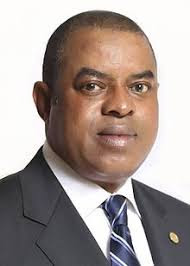
Senator Ashafa Pledges full support for Governor Ambode

Representing the good and hardworking people of Lagos East Senatorial District
has this morning 22ND February, 2018 been drawn to a news item
published on an online news blog known as “Society Now” and captioned “AGAIN
TALKS GBENGA ASHAFA INTERESTED IN BECOMING NEXT LAGOS GOV FLOAT ABOUT TOWN”.
uses this medium to reiterate his support for the government of his Excellency,
Governor Akinwunmi Ambode and to state that he is firmly focussed on his
assignment as the Senator representing the people of Lagos East Senatorial
District in the upper chamber of the Legislature. Senator Ashafa is equally
committed to supporting the brilliant strides of the incumbent Governor of Lagos
State and would continue to support him accordingly.
only last week, on Friday 16th February, 2018, Senator Gbenga Ashafa
used the medium of his address at the closing ceremony of the Entrepreneurship
Training and Skill Acquisition program for constituents of Lagos East by his
office in conjunction with SMEDAN to further publicly drum up support for the
government of Governor Akinwunmi Ambode, noting the good works of the governor
particularly in the aspect of youth empowerment.
Gbenga Ashafa equally played a very vital role in rallying the Lagos East
General Assembly of the All Progressives Congress to ensure that a vote of
confidence was passed on government of His Excellency, Governor Akinwunmi
Ambode during the General Assembly which held in Ikorodu on 4th of
December, 2017 under the leadership of Otunba Bushura Alebiosu (BUSH). At the
General Assembly, Ashafa was quoted to have hailed the exemplary leadership of
the Governor and also that the present developmental projects in the state
should be allowed to continue, describing Ambode as the most effective Governor
in Nigeria.
It has therefore come to the Distinguished Senator as a surprise that any news
medium would contemplate the possibility of him contesting against the
candidacy of Governor Akinwunmi Ambode in the 2019 general elections.
Lagos East and indeed all Lagosians to continue supporting the Government of
Governor Akinwunmi Ambode and also wishes to make it abundantly clear that he
is currently focused on his assignment as the Senator representing Lagos East
Senatorial District in the National Assembly.
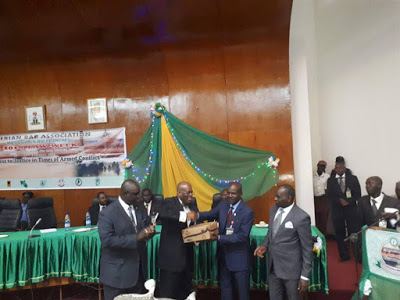
Kind Hearted Paul Usoro SAN makes contributions to IDPs in Maiduguri

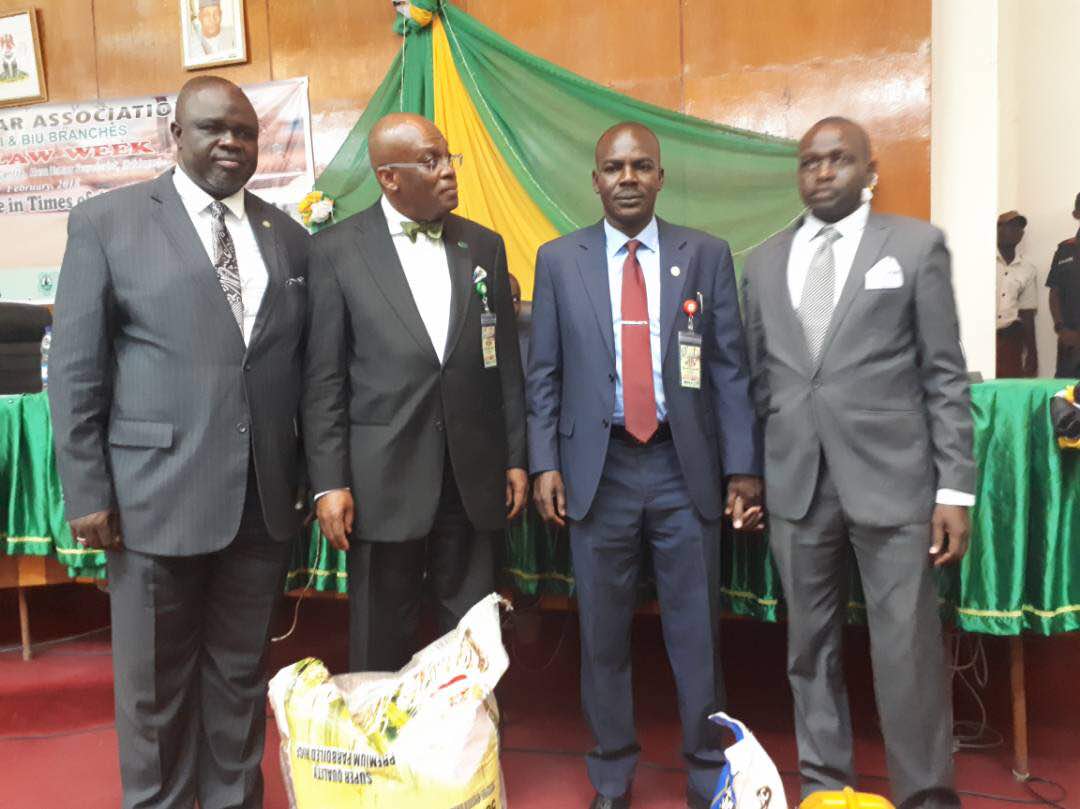
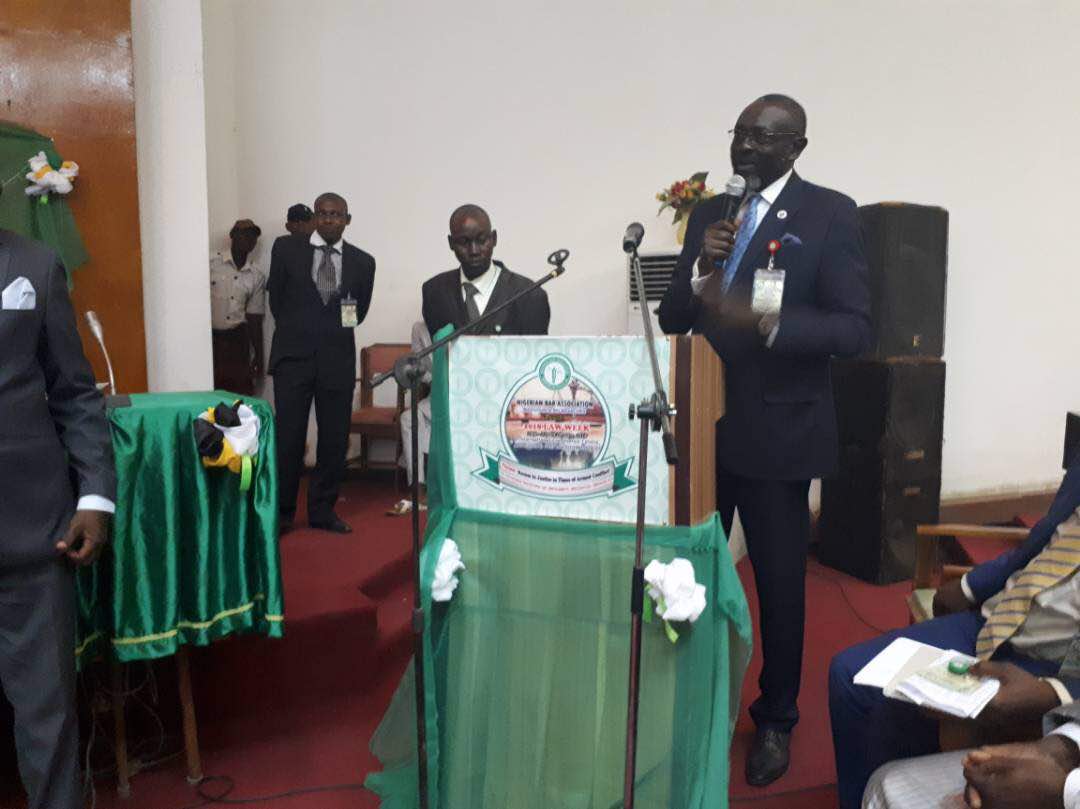
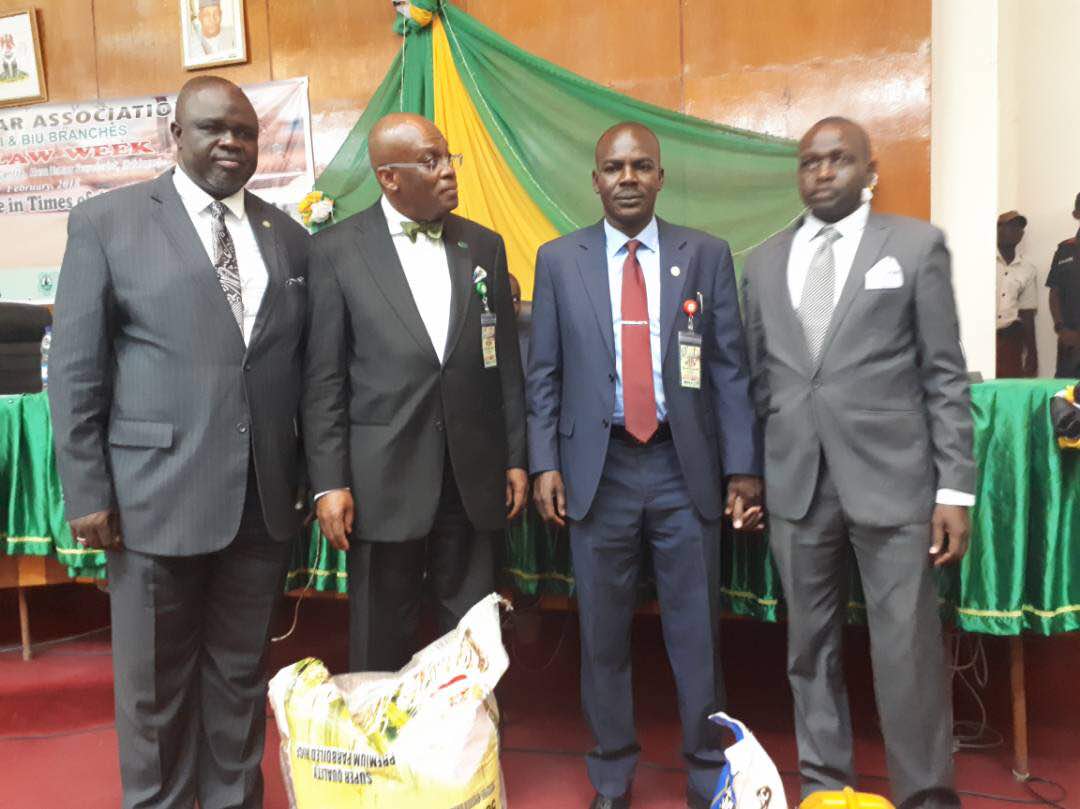

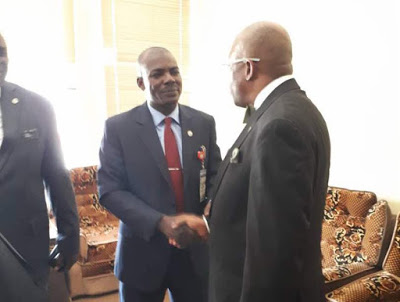
Leading Lawyer, Paul Usoro shows support to IDP in Maiduguri

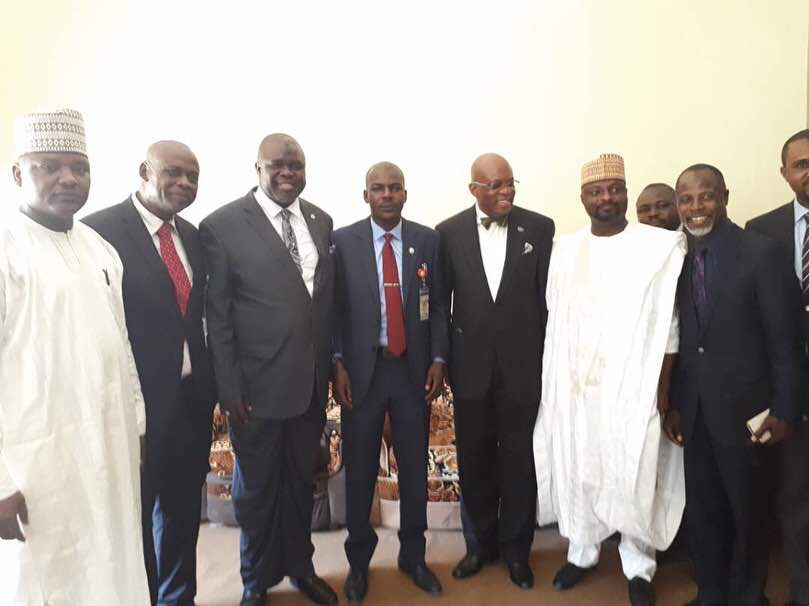
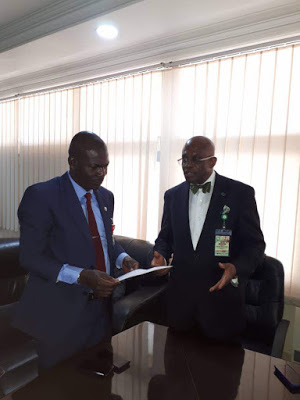
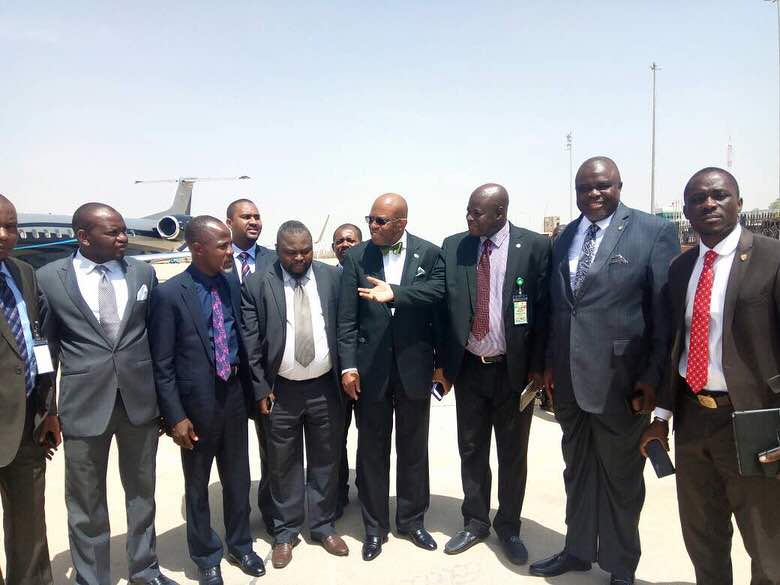
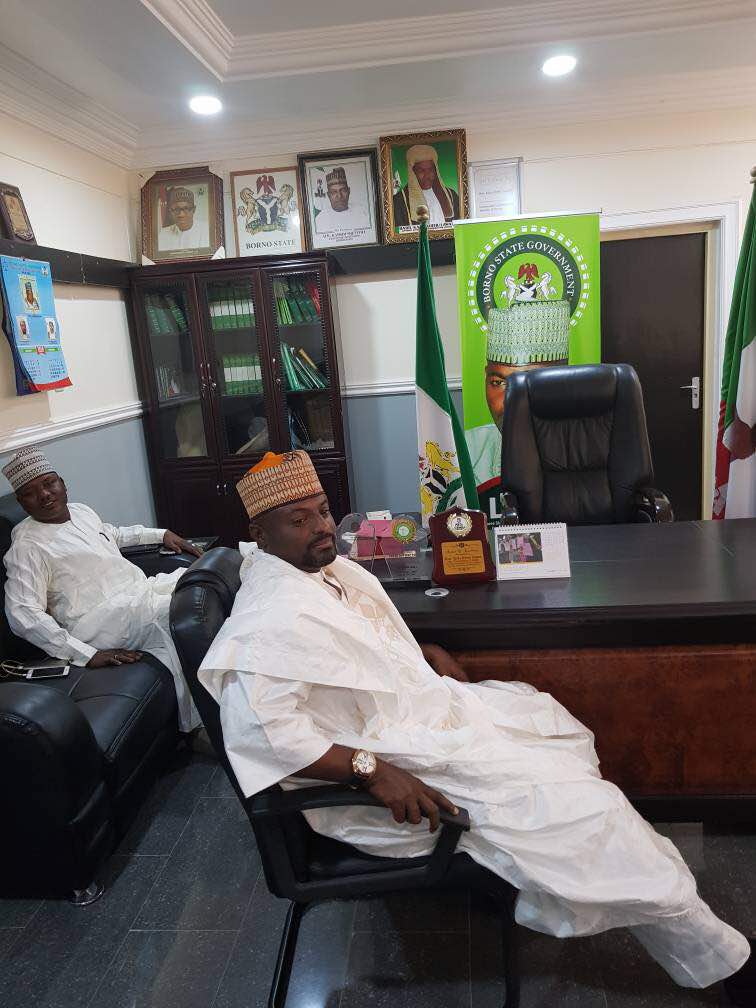

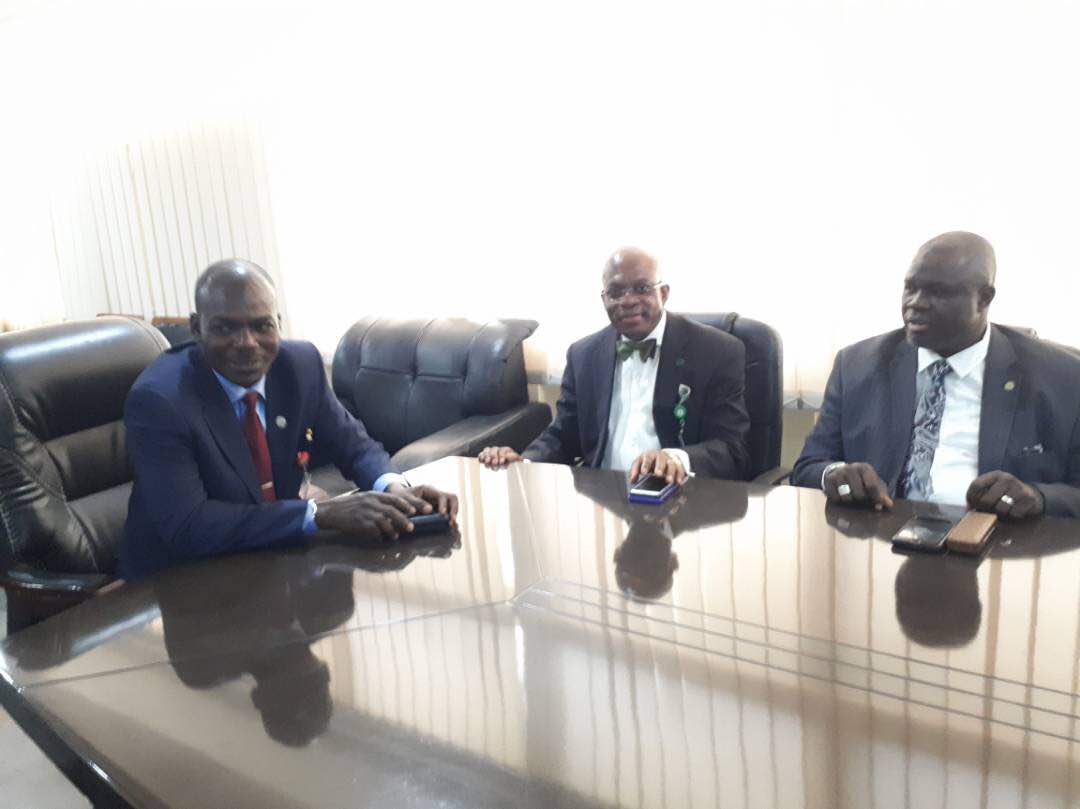
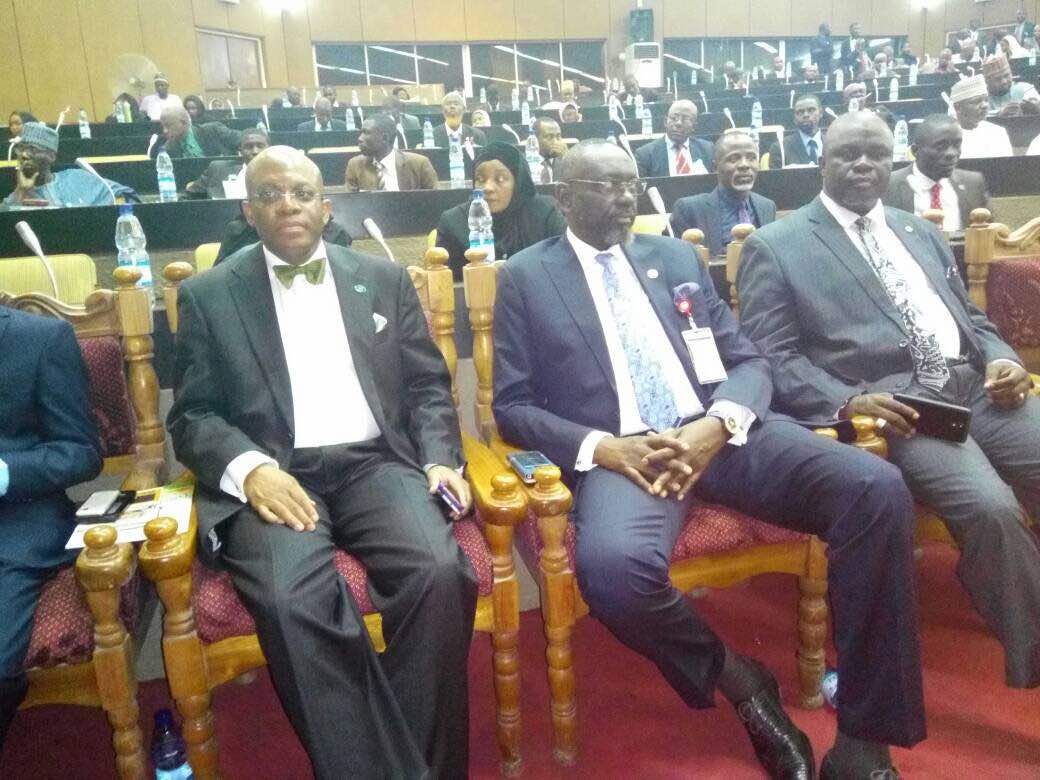
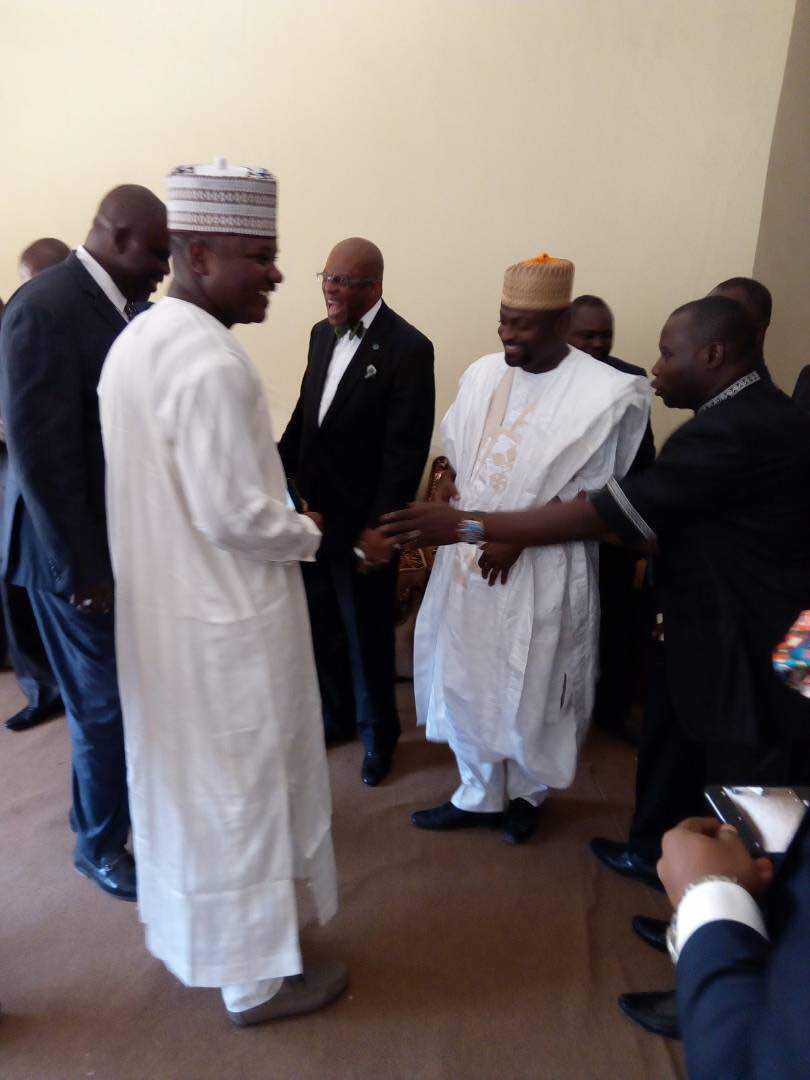
“We are aware of the state of the IDPs and we didn’t come empty handed. We have some gift items for distribution to the IDP with the help of the Attorney General and the Bar Leaders. It is a drop in the ocean but the little drops will constitute an ocean. We hope it helps to ameliorate the suffering in Borno.”
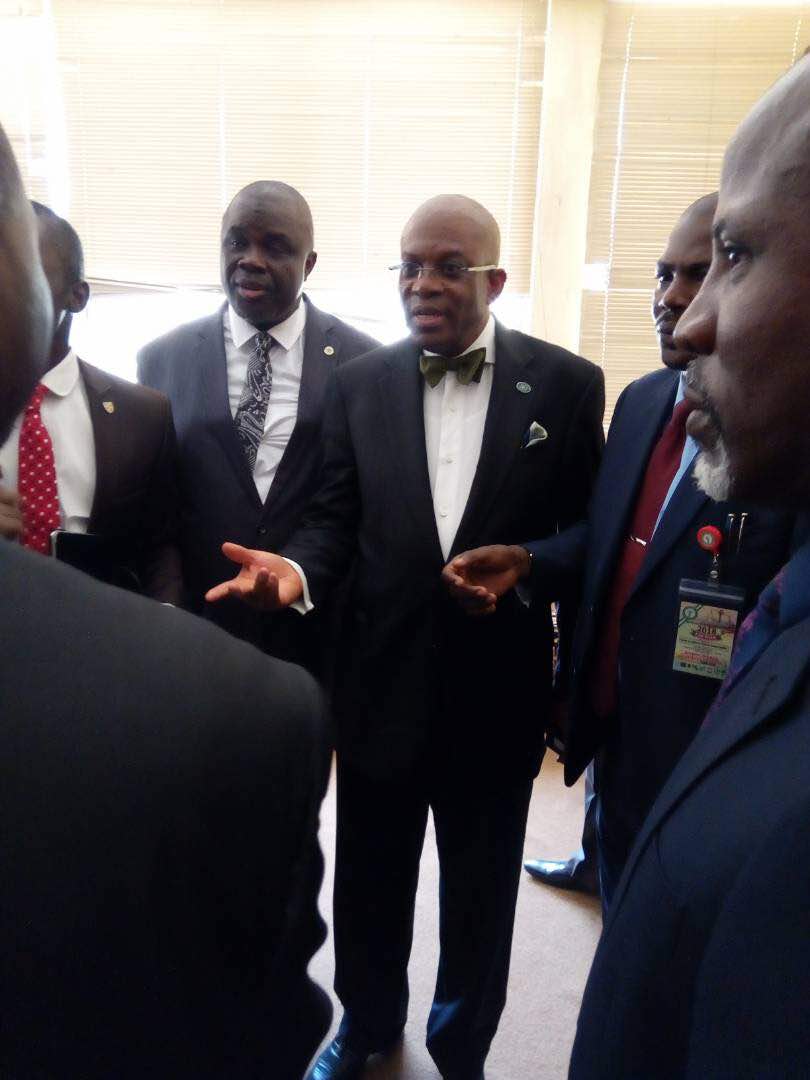
“As lawyers, we have a responsibility to help in building the society and coming together as an association is a good thing. If there is rot in an association, it starts from the head. We must have a strong association that can speak to ‘power’ and encourage ‘power’ to fulfill its commitment to the people”.
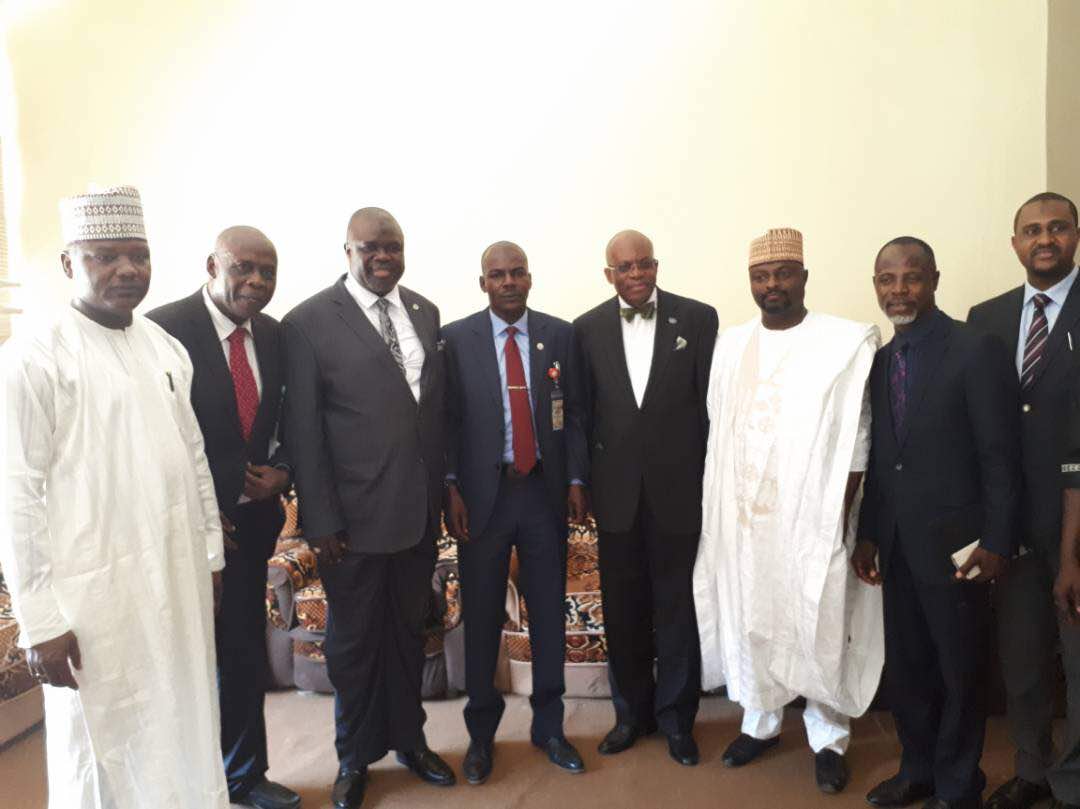

The AG/CJ responded by thanking Paul Usoro immensely for his kindness and thoughtfulness. “The gifts you have provided will go a long way to alleviate the sufferings of so many internally displaced persons in Borno State. We are privileged to have the learned Silk – Mr. Paul Usoro, SAN, in Borno State today. The name Paul Usoro is known to virtually all practicing lawyer in Nigeria. We are proud to learn from Mr. Usoro’s experience and exemplary leadership qualities”.


Also in attendance at the meeting were members of Usoro’s delegation including Alh. Tajudden Oladoja – Barnawa Branch, Aminu Sani Gadanya – Chairman, Kano Branch, Lekan Thanni – past Secretary, Ibadan Branch, Kennedy Onwusi – Enugu Branch, Karshima David – Chairman, Pankshin Branch, Aguda Ememobong – Secretary, Uyo Branch.
